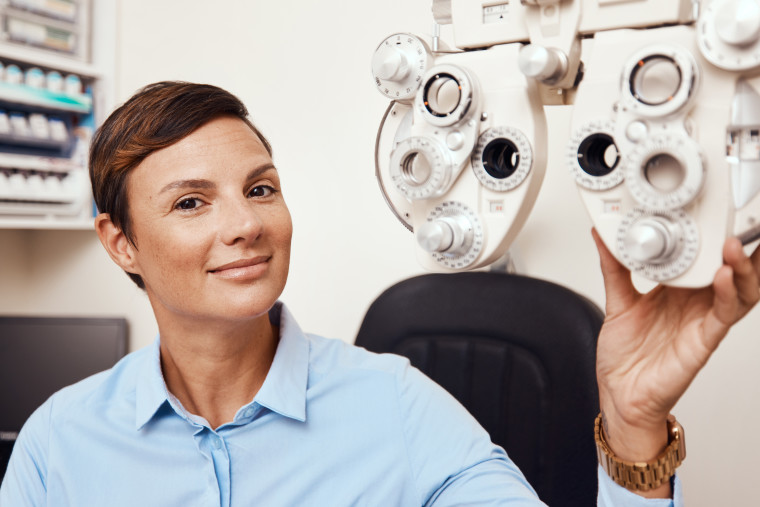Featured
Table of Contents
Eye health and wellness is a vital element of general wellness, and routine eye examinations play a crucial function in maintaining excellent vision throughout life. Each age team has details requirements and risks connected to eye health, making it important to adhere to customized suggestions for eye examinations. Below's a detailed summary of exactly how typically eye examinations need to be set up for various age teams.
After the very first exam, children should have a 2nd eye evaluation around age three, when they can much better take part in testing and assessment. If no vision issues are identified, the following examination is recommended prior to beginning school, generally around age 5. Early detection of problems can lead to timely treatment and support healthy visual development.
Parents need to look for indicators of vision problems, such as trouble reviewing the blackboard, squinting, or experiencing headaches. It's important to schedule an eye test promptly if any of these signs emerge. Youngsters who take part in sports might take advantage of yearly eye examinations to make certain optimal visual performance and safety and security during tasks.
![]()
Young people often experience digital eye strain because of substantial screen time, causing signs and symptoms like dry skin and pain. If you discover these signs, looking for an eye examination is critical. An eye care expert can use options, such as computer glasses or lifestyle changes, to alleviate stress.
For individuals with health conditions like diabetic issues or hypertension, even more frequent tests may be essential. Routine monitoring is vital for early detection and monitoring of possible issues that can impact vision.
Senior citizens may additionally experience modifications in their visual perception, such as difficulty seeing in reduced light or identifying shades. Regular eye examinations permit prompt treatment and help maintain freedom and high quality of life.
Babies (0-2 Years)
Babies undertake significant aesthetic growth in their very early years, making very early eye assessments crucial. The American Academy of Pediatric medicine suggests that infants have their first eye examination at about six months old. This first browse through aids determine any kind of potential vision problems, such as strabismus (gone across eyes) or hereditary cataracts, which can influence development otherwise dealt with early.After the very first exam, children should have a 2nd eye evaluation around age three, when they can much better take part in testing and assessment. If no vision issues are identified, the following examination is recommended prior to beginning school, generally around age 5. Early detection of problems can lead to timely treatment and support healthy visual development.
Kids (3-18 Years)
For school-aged kids, regular eye exams are vital for both academic success and general wellness. Youngsters should have their eyes inspected every one to 2 years, depending upon their private requirements. Institutions commonly carry out vision testings, but these do not change thorough eye examinations by an eye care professional.Parents need to look for indicators of vision problems, such as trouble reviewing the blackboard, squinting, or experiencing headaches. It's important to schedule an eye test promptly if any of these signs emerge. Youngsters who take part in sports might take advantage of yearly eye examinations to make certain optimal visual performance and safety and security during tasks.
Young Person (19-39 Years)
Throughout young their adult years, many people take pleasure in relatively stable vision, yet that doesn't mean eye treatment can be neglected. Young adults must schedule comprehensive eye exams every 2 years. Those who use get in touch with lenses or have a family history of eye condition need to consider yearly examinations.
Young people often experience digital eye strain because of substantial screen time, causing signs and symptoms like dry skin and pain. If you discover these signs, looking for an eye examination is critical. An eye care expert can use options, such as computer glasses or lifestyle changes, to alleviate stress.
Adults (40-64 Years)
As people enter their 40s, modifications in vision can come to be much more obvious, especially presbyopia, a problem that makes it testing to concentrate on close things. Adults in this age group must arrange eye exams every one to two years. This is likewise the age when numerous eye diseases, such as glaucoma and diabetic retinopathy, can begin to establish.For individuals with health conditions like diabetic issues or hypertension, even more frequent tests may be essential. Routine monitoring is vital for early detection and monitoring of possible issues that can impact vision.
Elders (65 Years and Older)
Senior citizens go to a boosted danger for various eye illness, including cataracts, age-related macular deterioration, and glaucoma. It's recommended that people matured 65 and older have an eye exam at the very least annually. Early detection of these problems is vital, as several can be dealt with successfully if captured early.Senior citizens may additionally experience modifications in their visual perception, such as difficulty seeing in reduced light or identifying shades. Regular eye examinations permit prompt treatment and help maintain freedom and high quality of life.
Final thought.
Eye examinations are crucial at every phase of life, giving a vital opportunity to detect and address possible vision troubles. From the early months of life through the elderly years, following the advised timetable for eye tests can assist safeguard vision and improve overall health. Focusing on eye care and routine check-ups makes sure that individuals can appreciate clear vision and a far better top quality of life, making eye health and wellness a vital element of long-lasting wellness. Regular assessments with an eye care specialist will lead the way for healthier eyes and a brighter future.Latest Posts
Experience Coastal Sophistication at Deauville Inn
Published Apr 19, 25
1 min read
A Historic Coastline Location with Modern Delights
Published Apr 12, 25
1 min read
The Boogaloo Sports Bar & Grill at FunCity Hotel Resort: Where Fun Satisfies Flavor
Published Feb 10, 25
1 min read